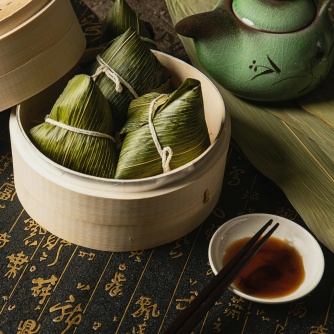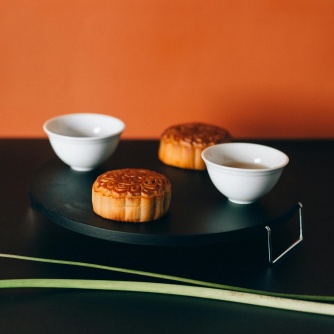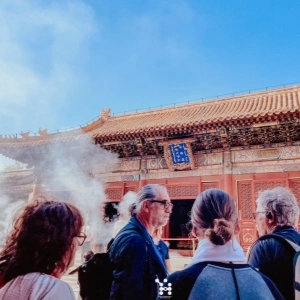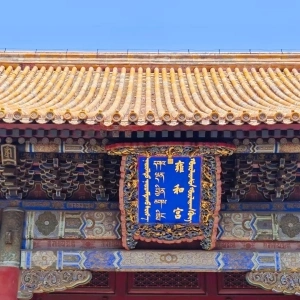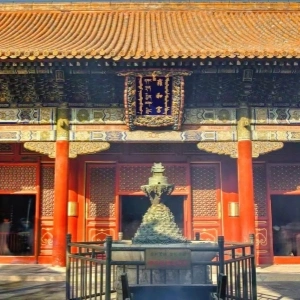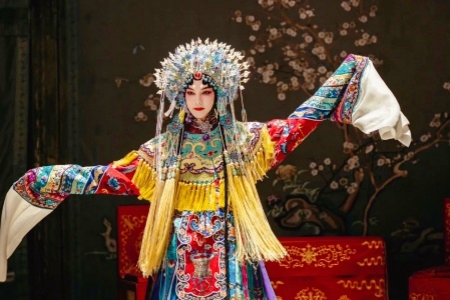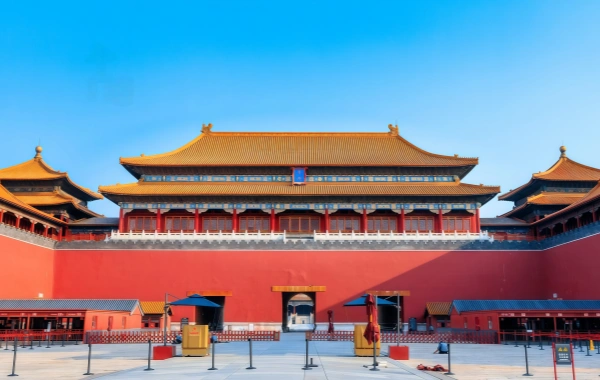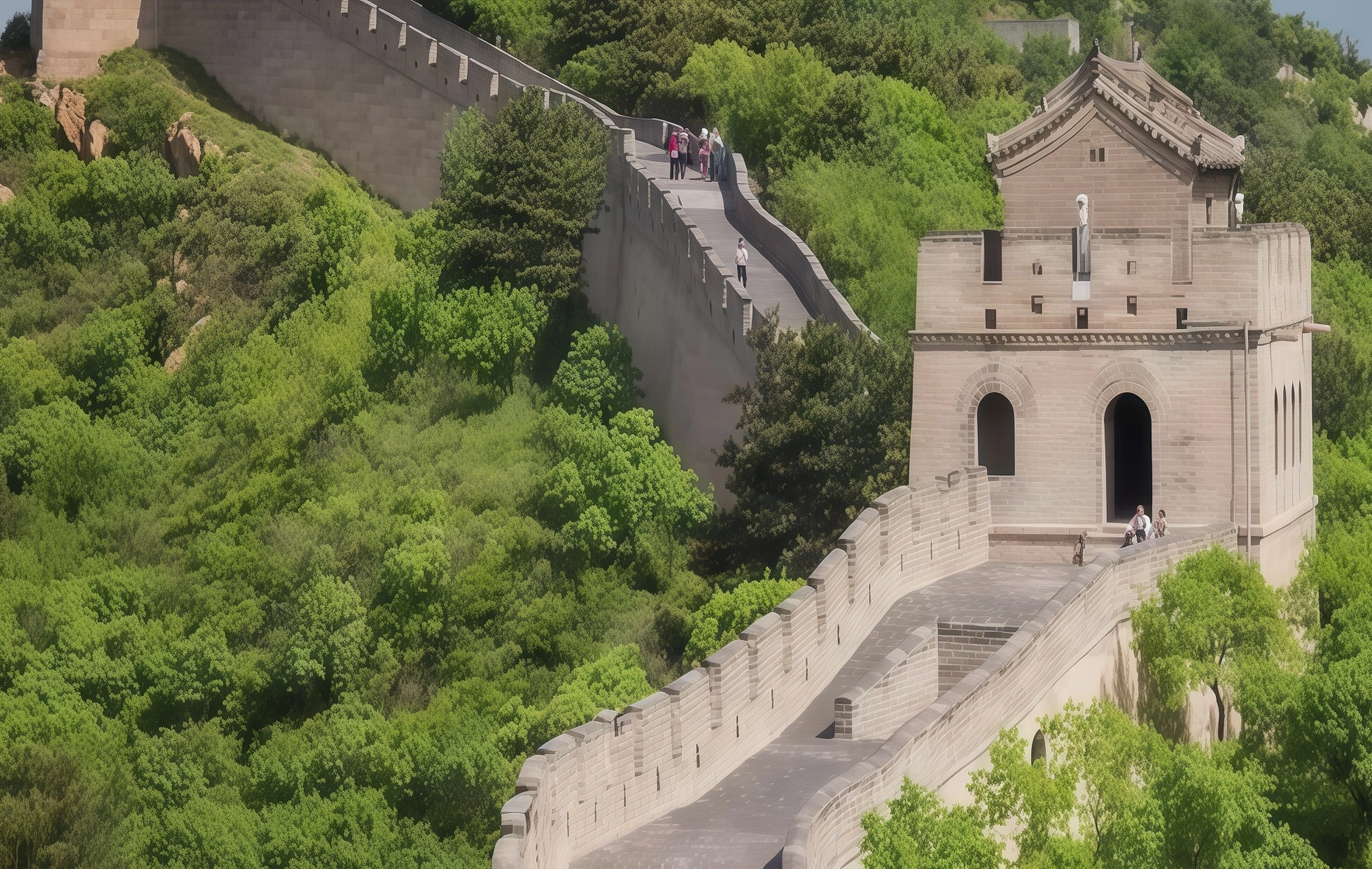Hong Kong is a vibrant metropolis where East meets West, blending rich Chinese traditions with global influences. This dynamic city is not only a financial hub but also a cultural treasure trove, offering visitors an unforgettable journey through its history, art, festivals, and heritage. Whether you're exploring centuries-old temples, admiring contemporary art, or experiencing traditional Cantonese opera, Hong Kong's unique cultural landscape has something for everyone.
Here’s a guide to Hong Kong’s culture and heritage that will help you uncover the stories of this fascinating city.
1. The History of Hong Kong: From Fishing Village to Global City
Hong Kong's history dates back over 6,000 years, starting as a humble fishing village before transforming into a thriving port city under British colonial rule in the 19th century. The city’s heritage is a blend of ancient Chinese customs and Western influences, shaped by trade, colonization, and its strategic position at the crossroads of Asia. Visit the Hong Kong Museum of History in Tsim Sha Tsui to learn more about the city’s evolution, from its earliest days as a small fishing community to its rapid development into one of the world’s most important economic centers.
2. Cantonese Traditions and Language
The predominant culture in Hong Kong is Cantonese, a Chinese dialect spoken by the majority of the population. This language is also a gateway to understanding local culture, especially in terms of food, music, and festivals. Cantonese cuisine is globally renowned, with dishes like dim sum, roast goose, and wonton noodles being staples in the city's culinary scene. Visitors can also experience Cantonese opera, a traditional art form that combines music, singing, acting, and acrobatics, often performed in the unique Cantonese language.
3. Temples and Spiritual Heritage
Hong Kong’s cultural heritage is deeply rooted in spirituality, with numerous temples and shrines dedicated to various gods, spirits, and ancestors. Man Mo Temple, one of the oldest and most famous temples in Hong Kong, honors the gods of literature (Man) and war (Mo). Located in Sheung Wan, this historic site offers visitors a glimpse into the city’s spiritual life, with its incense coils and intricate woodwork. For those interested in Buddhist heritage, the Tian Tan Buddha on Lantau Island is an iconic symbol of faith and tranquility.
The Wong Tai Sin Temple, dedicated to the Taoist god of healing, is another spiritual landmark where visitors can witness traditional Chinese worship practices and even seek fortune-telling from the temple’s practitioners.
4. Festivals and Celebrations
Hong Kong’s festivals are a testament to the city’s rich cultural diversity and its blend of traditional Chinese customs with international influences. Chinese New Year, the most significant celebration, is a time for family reunions, dragon dances, lantern displays, and fireworks. The Mid-Autumn Festival is another important occasion, marked by colorful lantern parades and the sharing of mooncakes. Visitors can enjoy these festivals by exploring the vibrant streets of Kowloon or participating in cultural performances and events held throughout the city.
In addition to Chinese festivals, Hong Kong celebrates various international holidays, including Christmas and Halloween, adding to the city’s eclectic cultural mix.
5. Traditional Chinese Architecture
Hong Kong’s skyline is dominated by modern skyscrapers, but its architectural heritage is just as impressive. Traditional Chinese architecture can be seen in several temples, old villages, and historic buildings scattered throughout the city. The Chi Lin Nunnery in Kowloon is a prime example of classical Tang Dynasty architecture, featuring wooden structures, serene gardens, and lotus ponds. Another notable example is the Ping Shan Heritage Trail in the New Territories, where visitors can explore ancient villages, ancestral halls, and the historic Tsui Sing Lau Pagoda.
While Hong Kong is famous for its modern buildings, these historical sites offer a glimpse into the city’s cultural past.
6. Art and Contemporary Culture
In recent years, Hong Kong has become a vibrant hub for contemporary art and culture, attracting artists and art lovers from around the world. The Hong Kong Museum of Art and the M+ Museum in West Kowloon showcase a mix of Chinese traditional art, contemporary art, and global exhibits, with works by both established and emerging artists.
Street art and installations also play a major role in the city’s modern cultural scene. Neighborhoods like Sheung Wan and Central feature murals and creative spaces where visitors can appreciate the city’s urban art scene. Hong Kong’s annual Art Basel fair is one of the most prestigious art events in the region, drawing artists, collectors, and art enthusiasts from across the globe.
7. Heritage Trails and Traditional Villages
To experience Hong Kong’s cultural heritage in a more intimate setting, visitors can explore the city’s heritage trails and traditional villages. The Lantau Island Heritage Trail takes you through scenic hiking routes and past historical sites, including traditional fishing villages and old temples. The Tai O Fishing Village, often referred to as the "Venice of Hong Kong," offers a glimpse into the city’s fishing heritage, with stilt houses built over the water and local seafood markets.
The Ping Shan Heritage Trail in the New Territories is another way to immerse yourself in Hong Kong’s rural past, where ancient walled villages and ancestral halls are scattered throughout the area.
8. Local Crafts and Cultural Products
Hong Kong is also a hub for traditional crafts and local products. Visitors can find intricate Chinese silk items, jade jewelry, and porcelain at local markets like Stanley Market and Cat Street in Sheung Wan. These markets are perfect for picking up authentic souvenirs and experiencing Hong Kong’s artistic craftsmanship. The city’s traditional Chinese medicine shops also offer herbal remedies and wellness products, steeped in centuries-old practices.
9. Hong Kong's Modern Fusion Culture
While Hong Kong remains deeply connected to its cultural roots, the city’s globalized nature has led to a fusion of traditional Chinese culture with influences from around the world. This is evident in the city's modern dining scene, the integration of global fashion trends, and the blending of architectural styles. The city’s cosmopolitan culture can be experienced at international restaurants, high-end shopping districts, and multicultural festivals, all of which reflect Hong Kong’s dynamic identity.
Recommended Itinerary:
China Landscape and Cultural Tour;
......
If interested in Hong Kong culture, plz feel free to contact us for a customized itinerary based individual preference.
Related Posts
Create Your Customized Trip
Take about 2 minutes to fill the form to tell us how you like to travel, and get a reply within 1 working day.

